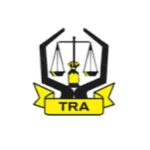
TRA
25 Interview Questions and Answers for Accountant II at TRA
If you’re preparing for the Accountant II interview at the Tanzania Revenue Authority (TRA), this Q&A guide will help you understand the role’s responsibilities, required skills, and expected qualifications.
1. What are the key responsibilities of an Accountant II at TRA?
Answer: An Accountant II at TRA is responsible for preparing revenue and expenditure reports, recording invoices and payment vouchers in the accounting system, conducting stocktaking, and ensuring timely banking of receipts.
2. What qualifications are required for this role?
Answer: You need a Bachelor’s Degree in Accounting, Finance, or a related field, along with a CPA (T), ACCA, or ACA certification to meet TRA’s professional accounting standards.
3. Why is CPA (T), ACCA, or ACA certification important for this role?
Answer: These certifications ensure that an accountant has the necessary expertise in financial reporting, auditing, taxation, and compliance with international accounting standards.
4. What languages are preferred for this position?
Answer: English and Swahili are required, as they are the primary languages used in Tanzania for official communication and reporting.
5. How do you prepare a revenue report?
Answer: I collect data on revenue collections, analyze trends, compare figures against targets, and compile a structured report for management decision-making.
6. What does preparing an expenditure report involve?
Answer: It includes tracking TRA’s expenditures, classifying expenses, ensuring they align with the approved budget, and presenting a detailed financial report.
7. How do you record invoices in an accounting system?
Answer: I enter invoice details—such as the supplier’s name, invoice number, amount, and date—accurately into the accounting system, ensuring approvals are in place.
8. What steps do you take when recording payment vouchers?
Answer: I record the voucher number, payment details, payee information, and link the transaction to the relevant invoice or expense for proper accounting.
9. Why is it important to bank receipts on time?
Answer: Timely banking ensures accurate cash flow management, prevents funds misappropriation, and keeps financial records up to date.
10. What is stocktaking, and why is it necessary?
Answer: Stocktaking is the physical verification of assets and inventory. It is essential to detect discrepancies, ensure accurate financial reporting, and prevent asset losses.
11. How do you contribute to TRA’s stocktaking process?
Answer: I participate by physically counting assets, reconciling records with actual stock, identifying discrepancies, and reporting variances to management.
12. What accounting software is commonly used at TRA?
Answer: TRA may use software like SAP, Oracle Financials, QuickBooks, or custom enterprise resource planning (ERP) systems to manage financial transactions.
13. How do you ensure accuracy in financial reporting?
Answer: I cross-check data entries, reconcile accounts, follow IFRS and TAS standards, and review reports before submission to prevent errors.
14. What challenges might you face while preparing financial reports, and how would you handle them?
Answer: Challenges like missing data, system errors, and tight deadlines can arise. I address them by verifying sources, using backup data, and communicating with relevant departments to resolve issues.
15. How do you handle discrepancies in stocktaking?
Answer: I investigate the root cause (e.g., errors, fraud, or misplaced assets), reconcile records if needed, and report findings to management for corrective action.
16. How important is teamwork in this role?
Answer: Teamwork is crucial for data accuracy, stocktaking, and financial reporting as it involves coordination with other departments to ensure all records are correctly maintained.
17. How do you prioritize tasks in a high-pressure accounting environment?
Answer: I prioritize tasks based on urgency and deadlines, ensuring daily banking of receipts, timely data entry, and scheduled report preparation to meet organizational goals.
18. What is your experience with revenue reporting?
Answer: I have worked on analyzing revenue sources, identifying trends, ensuring compliance with tax regulations, and preparing detailed revenue performance reports.
19. How do you stay updated on accounting standards and regulations?
Answer: I keep up with updates from NBAA, IFAC, IFRS, and TRA financial policies, attend accounting workshops, and engage in continuous professional development.
20. How do you manage workloads during peak financial periods, such as tax season?
Answer: I stay organized by prioritizing key tasks, breaking down work into manageable sections, and maintaining accuracy even under pressure to meet deadlines.
21. How would you explain a financial report to a non-financial colleague?
Answer: I would simplify technical terms, focus on key figures, use charts or graphs, and relate financial data to the organization’s performance and goals.
22. Why is prompt invoice recording important in accounting?
Answer: Timely recording ensures smooth payment processing, accurate expense tracking, and prevents late payment penalties or supplier disputes.
23. How do you ensure the confidentiality of financial data?
Answer: I strictly follow TRA’s data security protocols, use secure accounting systems, and limit access to confidential financial information only to authorized personnel.
24. What skills make you a strong fit for the Accountant II position?
Answer: My attention to detail, proficiency in financial reporting, ability to use accounting software, analytical mindset, and strong ethical standards make me a good fit for this role.
25. Why do you want to work at TRA as an Accountant II?
Answer: TRA plays a vital role in Tanzania’s economic growth, and I am eager to contribute my expertise in financial management and reporting to help optimize revenue collection and fiscal accountability.
Final Tips for Your TRA Accountant II Interview
- Customize your answers based on your experience.
- Practice speaking confidently and clearly.
- Stay updated on TRA’s latest financial policies.
- Showcase your problem-solving skills and attention to detail.
Would you like help tailoring any answers based on your background?


